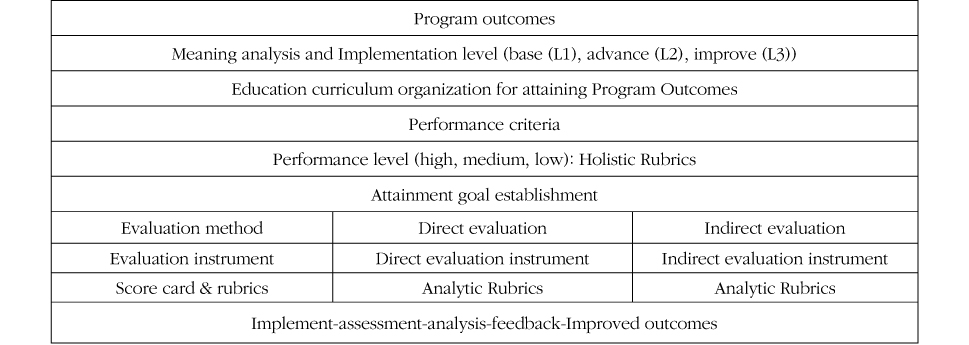1Department of Nursing, Daegu Health College, Korea.
2Department of Nursing, Shinhan University, Korea.
Copyright © 2014 Korean Academy of Nursing Administration
This is an open access article distributed under the terms of the Creative Commons Attribution Non-Commercial License (http://creativecommons.org/licenses/by-nc/3.0/), which permits unrestricted non-commercial use, distribution, and reproduction in any medium, provided the original work is properly cited.


Program Outcomes 3 Evaluation System Model
*Evaluation result (ER): "v"check, †H=High, ‡M=Medium, §L=Low; ∥EGI=Evaluation grade of items (=weighting × evaluation result).
*Evaluation result (ER): "v"check, †H=High, ‡M=Medium, §L=Low; ∥EGI=Evaluation grade of items (=weighting × evaluation result).